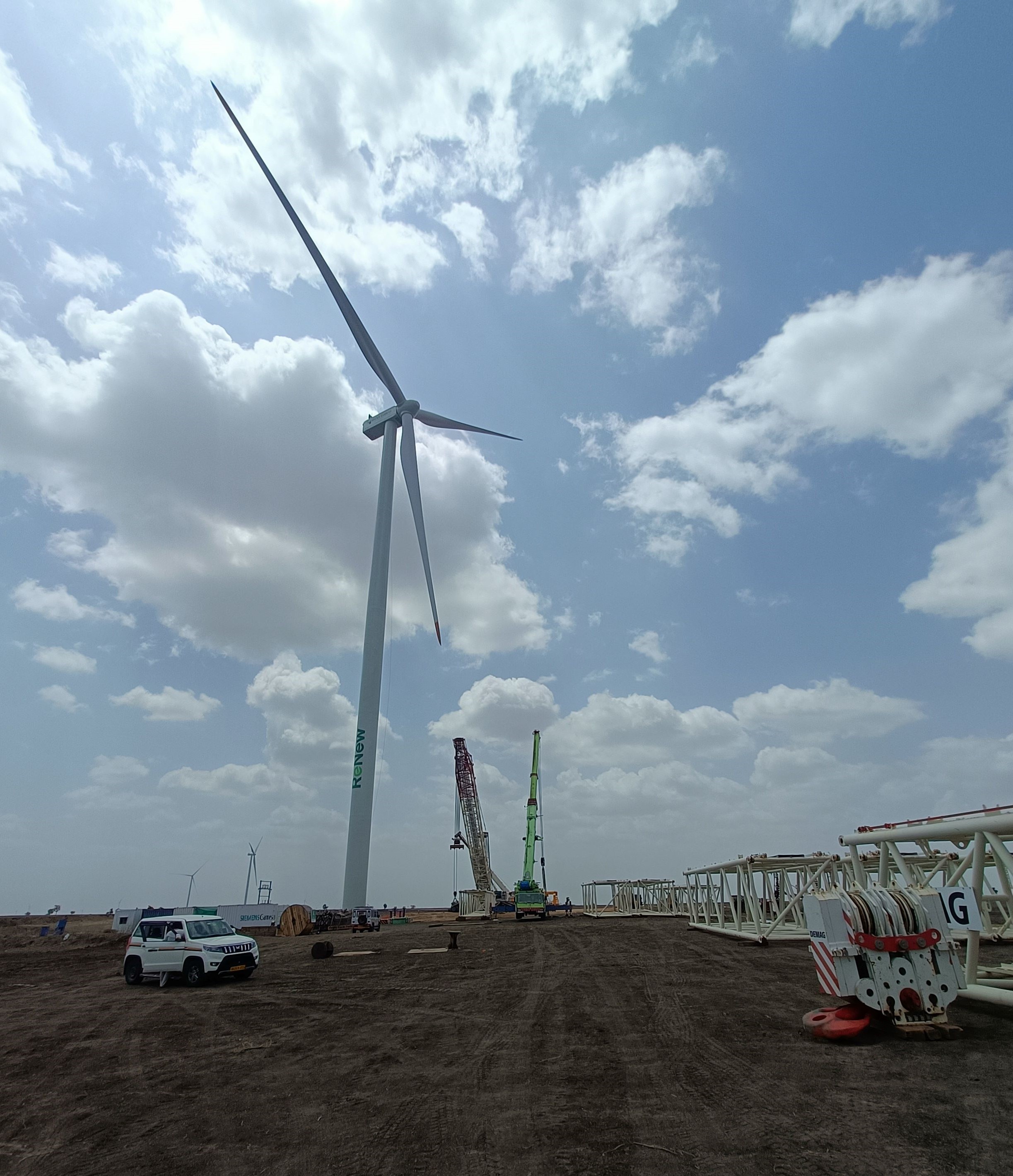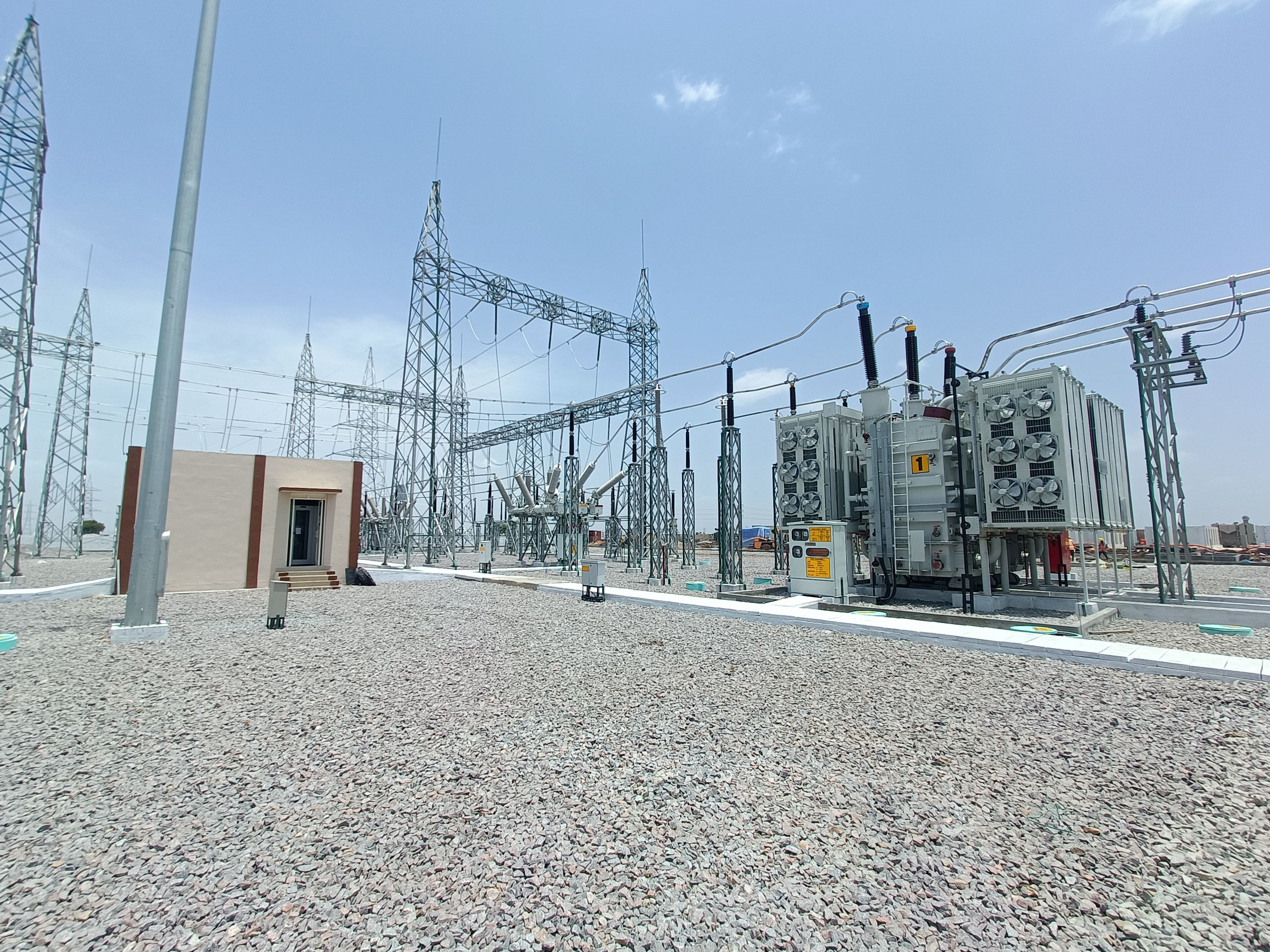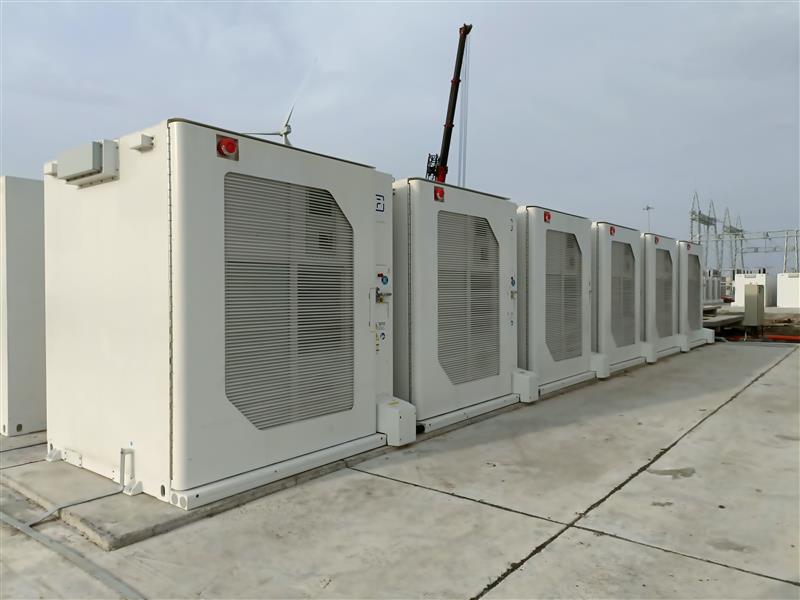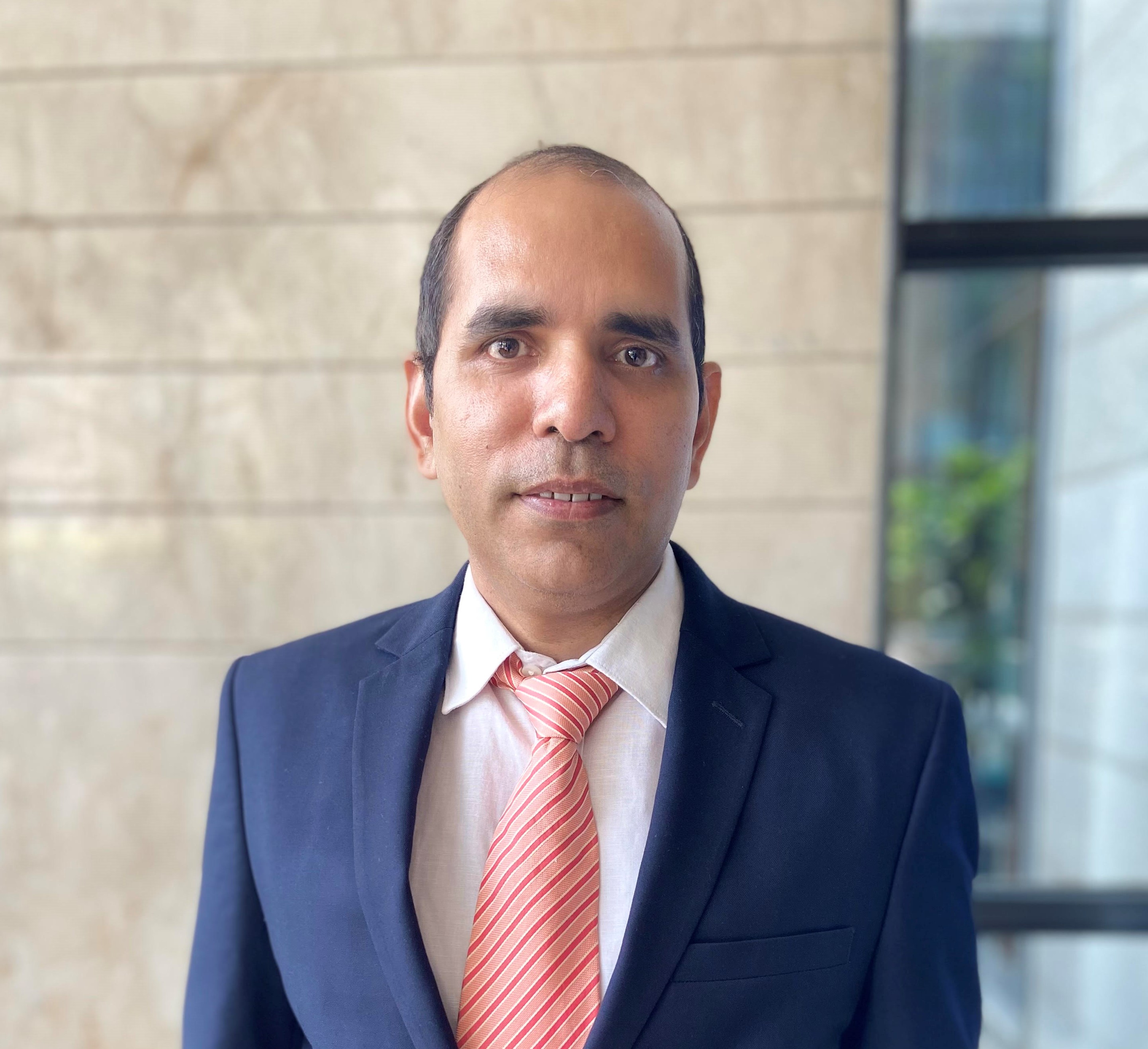
Listen to Engineering Angles, Tractebel's podcast!
In the latest episode of Engineering Angles, we caught up with Neha Bansal, Deputy General Manager of Hydropower & Water Resources in Business Development &...
Lees verderThe solar and wind plant can supply 300 MW to the grid during peak hours through battery energy storage systems. Tractebel is in charge of due diligence throughout this groundbreaking project.
India is the third largest energy consumer in the world, and also the third biggest renewable energy producer. The country’s ambitious renewable energy strategy of 500 GW by 2030 forges ahead with the 300 MW Peak Power project in the southern state of Karnataka. Our Renewable Energy experts have been appointed by client ReNew Surya Ojas Private Limited and the lenders State Bank of India to carry out the due diligence in all three phases of the project.

Early stages of the wind plant construction in June 2023
Tractebel mandated as Independent Engineer
Tractebel will verify the technical performance of the project and the project company’s compliance with the financing documentation between the lenders and the project company. Our due diligence activities will be carried out in three phases, as follows:
The mandate began in 2023 and is expected to be completed in 2024.

The substation will deliver up to 300 MW to the grid during peak hours
Peak Power's first hybrid wind-solar plant with battery energy storage systems in India
The Peak Power project is a hybrid solar and wind plant, plus BESS – the company's first of its kind in the country. It consists of an 81 MW solar plant, 322.245 MW wind plant and a 150 MWh BESS plant in the Gadag and Koppal districts of Karnataka. BESS, a flourishing technology in India, will enable the plant to supply 300 MW to the grid during peak hours. BESS eliminate the challenges of intermittent renewable energy production due to fluctuations in wind and sun by incorporating energy storage.

The Peak Power project’s battery energy storage systems (BESS) installation in Karnataka, India
Fighting climate change with renewable resources
This project will help reduce the carbon footprint of the region’s energy network by shifting energy requirements from conventional sources to renewable energy. India’s ongoing promotion and development of renewable power plants will benefit the environment by replacing power plants that use fossil fuels as the energy source.
“Tractebel is committed to building the low-carbon energy network of tomorrow and to meeting the challenges of climate change. We are pleased to support our client in the implementation of a project of this scale, which will bring India one step closer to its 2030 renewable energy goals. Our solutions for hybrid project implementation in the country will accelerate the growth of renewables – instrumental in solving the energy crisis – while drastically reducing emissions.”

Rajiv Singh, Renewable Energy, Tractebel in India

In the latest episode of Engineering Angles, we caught up with Neha Bansal, Deputy General Manager of Hydropower & Water Resources in Business Development &...
Lees verder
Tractebel helps ENGIE build its second large-scale battery park in Belgium, contributing to shaping a flexible, reliable and sustainable energy system in the country.
Lees verder
Our Urban teams from France and Monaco are leading the design and construction supervision of the Mediterranean Pavilion, ahead of the third United Nations Ocean...
Lees verder
Our transport infrastructure experts signed a mandate on April 25, 2025, to provide technical services on the first metro project in the Western Balkans. This is our...
Lees verder